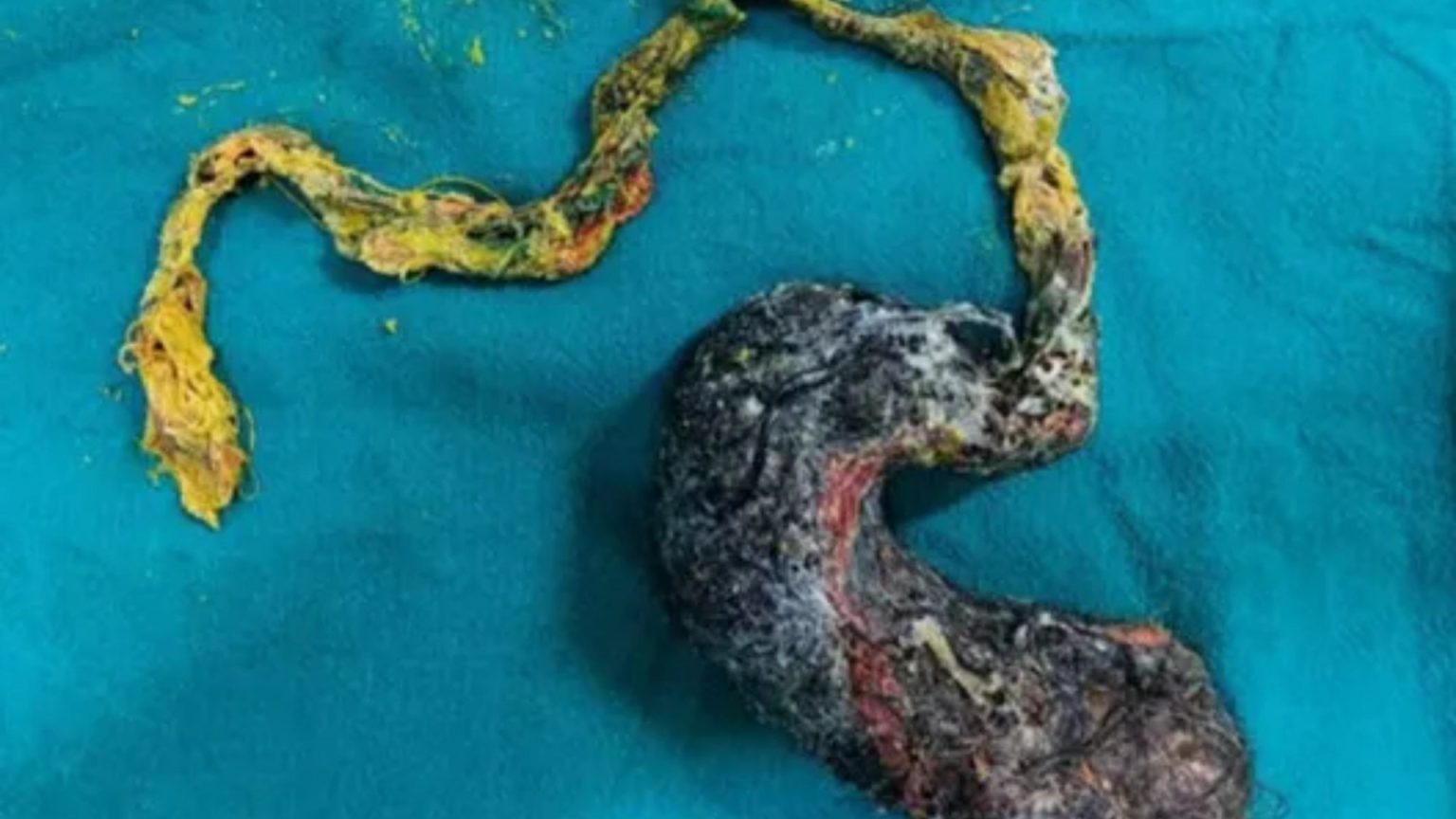Trichophagia: A Rare and Concerning Condition Leading to Digestive Complications
Trichophagia, often referred to as Rapunzel syndrome, is a rare condition characterized by the compulsive consumption of one’s own hair. It is typically associated with trichotillomania, a disorder involving the irresistible urge to pull out one’s hair. While trichotillomania affects approximately 20% of individuals, only a subset of these individuals progress to trichophagia. This hair consumption habit can lead to serious health complications, as the indigestible hair accumulates in the digestive system, forming masses known as trichobezoars. These bezoars can cause blockages and a range of gastrointestinal issues, sometimes requiring surgical intervention.
The case of a four-year-old girl in Nepal highlights the potential severity of trichophagia. Admitted to the hospital after experiencing abdominal pain, vomiting, early satiety, and a noticeable lump in her stomach, the young girl’s condition puzzled doctors. Upon further examination, a CT scan revealed a large mass in her stomach. Subsequent surgical exploration revealed a "stomach-shaped" hairball, intertwined with thread, extending into her duodenum. This unusual shape likely mirrored the contours of the girl’s stomach, highlighting the extent of hair accumulation. The successful removal of the trichobezoar brought relief to the young patient, emphasizing the importance of early diagnosis and intervention.
The development of trichobezoars is a significant concern in trichophagia. As hair is indigestible, it gradually accumulates in the stomach, forming compact masses. These trichobezoars can grow to considerable size, potentially obstructing the digestive tract. Symptoms associated with trichobezoars include abdominal pain, nausea, vomiting, a sensation of fullness even after small meals, and unexplained weight loss. In severe cases, the blockage can lead to malnutrition, dehydration, and even life-threatening complications if left untreated.
Trichotillomania, the underlying condition driving trichophagia, is a complex disorder often rooted in psychological factors. Affected individuals experience an overwhelming urge to pull out their hair, followed by a sense of relief. This cycle can be triggered by stress, anxiety, or underlying emotional distress. While hair pulling most commonly affects the scalp, it can also involve eyebrows, eyelashes, and other body areas. The resultant hair loss can lead to noticeable bald patches, further contributing to emotional distress and social anxiety.
Early diagnosis and intervention are crucial in managing both trichotillomania and trichophagia. If you or someone you know exhibits signs of compulsive hair pulling or eating, seeking professional help is essential. Cognitive Behavioral Therapy (CBT) is a recommended treatment approach for trichotillomania, helping individuals identify triggers, develop coping mechanisms, and break the cycle of hair pulling. If trichophagia is suspected, medical evaluation is necessary to assess the presence and extent of hair accumulation in the digestive system. Imaging techniques like CT scans can help visualize the presence of trichobezoars.
Rapunzel syndrome, while sharing the name with a fairytale character known for her long hair, is a serious condition with potentially debilitating consequences. Ignoring the signs and symptoms can lead to significant health complications. Raising awareness about this rare disorder, promoting early diagnosis, and providing appropriate psychological and medical interventions are essential steps in improving outcomes for those affected by trichophagia. Furthermore, supporting family members and creating a non-judgmental environment can significantly aid the recovery process.
The successful resolution of the young girl’s case emphasizes the importance of vigilance and timely medical intervention. While this specific case had a positive outcome, the potential for serious complications underscores the need for increased awareness and understanding of trichophagia and its associated risks. The medical community continues to explore effective strategies for managing these complex disorders, emphasizing the importance of a holistic approach encompassing both psychological and physical well-being.











